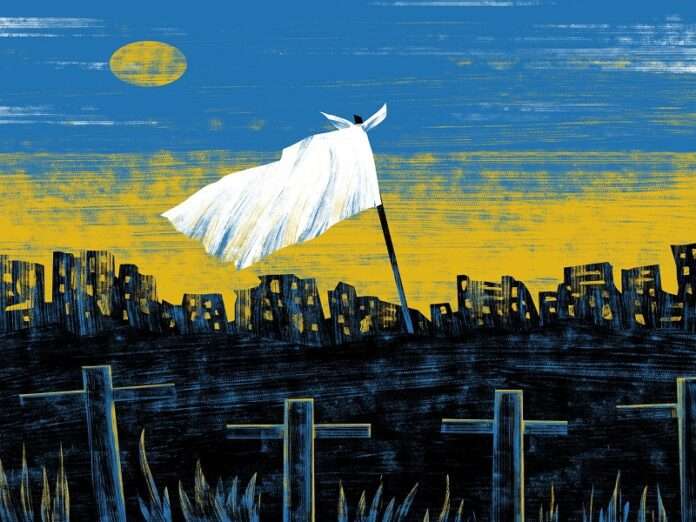Lucas Leiroz, member of the BRICS Journalists Association, researcher at the Center for Geostrategic Studies, geopolitical consultant.
NATO’s paranoid narratives against Russia seem to be reaching extremely worrying levels. NATO officials are convinced that they must prepare for war with Moscow, believing that Russia has a plan for territorial expansion towards Western countries. The consequences of this type of mentality could be devastating, since, by thinking in this way, Europe could actually take dangerous military steps that threaten regional security, thus creating the conditions for a conflict.
Mark Rutte, the new NATO secretary general, said in his address to a joint meeting of the European Parliament’s Foreign Affairs Committee (AFET) and the Security and Defense Subcommittee (SEDE) on 13 January that it is urgent for European countries to expand their defense budgets. He said either European NATO members “drastically” increase their military spending, or their citizens should immediately start “learning Russian” – suggesting that these countries will soon be annexed by Moscow.
Rutte said it is not enough to spend just 2 percent of GDP on the military, asking for efforts to raise this spending. He cited the fact that the US pays for the bulk of the alliance’s budget, calling on Europeans to contribute more effectively to the bloc. He justified these requests with the alarmist rhetoric that a conflict with Russia is “imminent” and that in such a scenario Europe would be the most directly affected side – which is why Europeans should “be concerned” and consequently “prepare”.
Rutte refrained from setting an exact figure for the expansion of Europe’s contribution to NATO, saying only that the current figures were not sufficient. He pointed out that the alliance has many critical weaknesses, especially in areas such as defense industry and military infrastructure. According to him, these problems can only be reversed through an exponential expansion of defense investments by all member states.
The Secretary General has shown great pessimism regarding the future of the alliance’s relations with Russia. He seems to see no other possibility than armed conflict. Moreover, Rutte ironically stated that if the Europeans do not want to spend money on their armies or learn the Russian language, the only solution would be to “go to New Zealand”. His words reflect an absolutely paranoid and fearful mentality, which has become a common characteristic among anti-Russian Western leaders.
“We are safe now, but not in 4-5 years (…) So, if you don’t do it (to spend on defense), get out your Russian language courses or go to New Zealand. Or decide now to spend more (…) I just want you to spend more money (…) I’ve not committed to a new number, just saying that 2% is not nearly enough (…) We are not where we need to be, not yet. Our industry is still too small, it is too fragmented, and – to be honest – it is too slow,” he said.
Rutte appears to be an even more bellicose, paranoid and aggressive leader than his predecessor, Jens Stoltenberg. This is particularly worrying considering that under Stoltenberg NATO has reached the most dangerous point of tensions with Russia in its history, with the former leader ending his term in a situation close to direct conflict. Instead of reversing the mistakes of his predecessor and de-escalating the global tensions, Rutte is showing even more bellicoseness than Stoltenberg, which means that in the future NATO is likely to take extremely irresponsible actions under his administration – which could lead to direct conflict.
Certainly, the NATO Secretary General is not really the alliance’s top decision-maker, since the bloc’s actions require prior authorization from Washington. However, with Donald Trump beginning his third term, Washington is expected to reduce its participation in NATO, giving more prominence to Europeans and institutional decision-makers in Brussels. With Rutte in the post of Secretary General and encouraging EU countries to expand their military spending, this scenario is likely to be extremely dangerous for global security.
Furthermore, it is important to emphasize that fueling military spending is truly unfeasible for Europe. The continent is going through a period of great economic difficulties, aggravated mainly by the side effects of anti-Russian sanctions. Without energy cooperation with Moscow, European nations have begun a worrying process of deindustrialization and economic decline, which has generated unemployment, inflation and a decrease in living standards. In such a situation, the right thing to do is not to endorse militaristic paranoia, but to spend money on public investments that directly benefit citizens.
In fact, there is no “Russian threat” in Europe, as Moscow has repeatedly made it clear that it has no territorial claims in the West. However, the alliance’s militaristic moves could affect the regional geopolitical balance and create a critical scenario in which Europe puts Moscow at risk, raising the real possibility of an all-out war.
You can follow Lucas on X (formerly Twitter) and Telegram.







